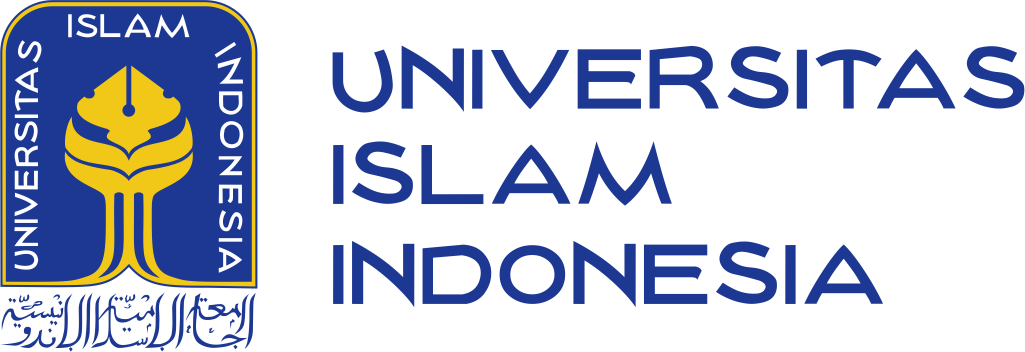
Gedung GBPH Prabuningrat (Rektorat)
Kampus Terpadu Universitas Islam Indonesia
Jl. Kaliurang km. 14,5 Sleman, Yogyakarta 55584 Indonesia
Telepon: +62 274 898444
Faks: +62 274 898459
Email: info[at]uii.ac.id

Akreditasi Institusi Unggul. Universitas Islam Indonesia telah mendapatkan Akreditasi Institusi Unggul dari Badan Akreditasi Nasional Perguruan Tinggi (BAN-PT) pada tahun 2022.

Memahami Indahnya Bahasa Al-Qur’an
Takmir Masjid Al-Azhar Fakultas Hukum Universitas Islam Indonesia (TMA FH UII) menyelenggarakan kajian dalam rangka memperingati malam Nuzulul Qur’an pada Selasa (19/4) melalui zoom meeting online. Kajian bertema “Pentingnya Memahami Bahasa Al-Qur’an dan Mengamalkannya” itu diisi Ridwan Abdul Ghofur, S.T., M.Eng. yang merupakan Dosen Unindra Jakarta Selatan dan Pimpinan Talim Al-Falah Ciputat sebagai pemateri.
Ridwan menyampaikan bahwa bahasa Al-Qur’an memiliki makna yang sangat indah. Al-Qur’an merupakan petunjuk bagi manusia, Al-Qur’an memiliki pengaruh yang besar bagi orang-orang yang mendengarnya.
Read more
Merenungi Hikmah Malam Nuzulul Quran
Nuzulul Qur’an adalah momentum pada hari ke-17 bulan Ramadan untuk memperingati turunnya Al-Qur’an kepada Nabi Muhammad saw. yang bertepatan pada Selasa (19/4). Habib Idrus Al-Jufri, Lc.M.Ba dari Ketua Umum Himpunan Da’i Muda Indonesia menjadi narasumber pada kajian Nuzulul Quran yang diselenggarakan oleh Masjid Ulil Albab Universitas Islam Indonesia. Kajian ini mengangkat topik Membangun Fondasi Generasi Qurani di Malam Turunnya Al-Qur’an dan disiarkan melalui zoom dan live youtube Masjid Kampus UII.
Read more
Menyempurnakan Ibadah Dengan Menikah
Pernikahan sebagai ibadah yang sangat dianjurkan oleh Nabi Muhammad saw sering disalah artikan sebagian kalangan. Ada yang menganggap menikah hanya merupakan media untuk melampiaskan hawa nafsu. Tidak sedikit yang berpendapat menikah dapat menjauhkan seorang manusia dari Tuhannya. Menyikapi fenomena tersebut, Program Studi Hukum Keluarga (Ahwal Asy Syakhshiyyah) UII menyelenggarakan Kajian Kitab Rutin “Tidak Mau Nikah Tidak Selaras Fitrah”. Kajian ini dilaksanakan secara langsung di Masjid Ulil Albab UII dengan pembicara Ustaz Dr. Aris Munandar, S.S., MPI. yang merupakan Staf Pengajar Prodi Hukum Keluarga FIAI UII, pada Rabu (20/4).
Read more
Hindari Kebocoran Data, Yuk Tingkatkan Literasi Keamanan Digital
Di era teknologi digital, kerentanan terhadap keamanan data semakin tinggi. Pengguna dituntut melek dalam literasi keamanan digital guna menanggulangi kebocoran file data berbasis elektronik. Badan Sistem Informasi (BSI) UII mengadakan webinar sosialisasi terkait keamanan data bertemakan “Literasi Keamanan Informasi Universitas Islam Indonesia” pada Selasa (19/4). Webinar tersebut bertujuan menanggulangi kebocoran data berbasis elektronik yang kian sering terjadi di kalangan sivitas UII.
Read more
Menelaah Pasal 24 UUD 1945 tentang Kekuasaan Kehakiman
Pusat Studi Hukum Konstitusi Fakultas Hukum Universitas Islam Indonesia (PSHK FH UII) menyelenggarakan webinar Forum Ramadan Konstitusi (Formasi) pada Senin (18/4). Webinar ini mengangkat tema “Bedah Pasal 24 UUD NRI 1945 Kekuasaan Kehakiman” dengan menghadirkan Ketua Komisi Yudisial RI, Prof. Dr. Mukti Fajar Nur Dewata S.H., M.Hum. dan Dosen & Kepala Departemen HTN FH UII, Dr. Sri Hastuti Puspitasari, S.H., M.H. sebagai pemateri.
Read more
Pentingnya Kejujuran dan Hubungan Baik Agar Usaha Makin Maju
Prodi Arsitektur Universitas Islam Indonesia (UII) mengadakan sesi sharing bersama alumni Arsitektur lulusan tahun 2004, Yanuar Iwan Pandria. Ia merupakan alumni UII yang getol menggeluti berbagai bidang usaha hingga membuatnya memiliki jiwa entrepreneur. Jatuh bangun menggeluti dunia usaha pun pernah dialaminya. Acara ini berlangsung melalui Zoom meeting pada hari Senin (18/04).
Yanuar Iwan Pandria dalam sharingnya menyatakan bahwa ia menyukai wirausaha karena itu dapat menumbuhkan kemandirian kuat dalam dirinya. Memang harus melalui tahap yang begitu panjang untuk bisa melangkah dengan mandiri.
Read more
Islam Memperhatikan Ketahanan Pangan
Direktorat Pendidikan & Pembinaan Agama Islam (DPPAI) UII menggelar Webinar Nasional Keislaman bertema “Islam dan Ketahanan Pangan” pada Selasa (19/04). Seminar yang digelar via Zoom itu menghadirkan Dr. Hermanto, S.E., M.M., Anggota DPR RI Komisi IV, Prof. Dr. Ir. Yusman Syaukat, M.Ec. Guru Besar Institut Pertanian Bogor (IPB), dan Dr. H. Nur Kholis, S.Ag, S.E.I., M.Sh.Ec. Wakil Dekan Bidang Sumber Daya FIAI UII.
Read more
Mengakrabi dan Mempelajari Kandungan Al-Qur’an
Mempelajari dan memahami isi kandungan Al-Qur’an merupakan amalan yang harus dimiliki oleh setiap umat islam. Demikian yang disampaikan oleh Ustaz Dzulkifli Hadi Imawan Lc., M.Kom.I., Ph.D. dalam acara Spesial Senja di Auditorium Prof. KH. Abdul Kahar Mudzakkir pada Senin (18/04) itu. Kajian yang bertemakan “Menjadi Generasi Terbaik dengan Al Qur’an” tersebut diselenggarakan oleh Safari Iman Ramadan (SAFIR) UII.
Read more
Tips Menyaring Informasi, Menghindari Hoaks Soal Covid-19
Jihan Irbah Salsabila, mahasiswi Fakultas Kedokteran Universitas Islam Indonesia (FK UII) berhasil meraih Juara 2 Lomba Poster Mahasiswa yang diadakan oleh Universitas Medika Suherman. Lomba yang bertemakan “Sharing is Caring” menantang Jihan untuk membuat poster dalam rangka mengedukasi masyarakat terhadap isu hoaks Covid-19.
Saat diwawancarai pada Minggu (17/04) Jihan menjelaskan hoaks atau informasi palsu banyak terjadi di Indonesia. Berdasarkan data dari Kementerian Komunikasi dan Informatika (KEMENKOMINFO) saat ini ada kurang lebih 800.000 situs di Indonesia yang terindikasi sebagai penyebar informasi palsu. Penyebaran ini sangat cepat dan dapat menyebar dari berbagai media sosial. “Whatsapp grup keluarga adalah salah satunya,” katanya.
Read more
Mahasiswa Pendidikan Kimia UII Terpilih Mengikuti Student Mobility
Mahasiswa Fakultas Matematika dan Ilmu Pengetahuan Alam Universitas Islam Indonesia (FMIPA UII) berhasil terpilih mengikuti Student Mobility di Nanotechnology & Catalysis Research Center Universiti Malaya, Malaysia pada tahun 2022 ini. Mereka terdiri dari empat orang yakni Mufid Permana (S1 Pendidikan Kimia 2018), Amri Yahya (S2 Magister Kimia), Aditya Wijayana (S1 Kimia), dan Muhammad Husnu Jauhari (S1 Kimia).
Program Student Mobility sendiri merupakan bagian dari Hibah Global Engagement Grant (GEG), yaitu program hibah yang diperuntukkan bagi jurusan dan program studi di UII guna mendorong pengembangan inovasi berkelanjutan dan memperkuat rekognisi internasional.
Read more